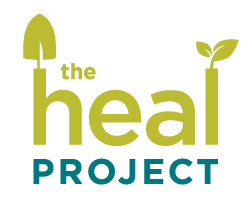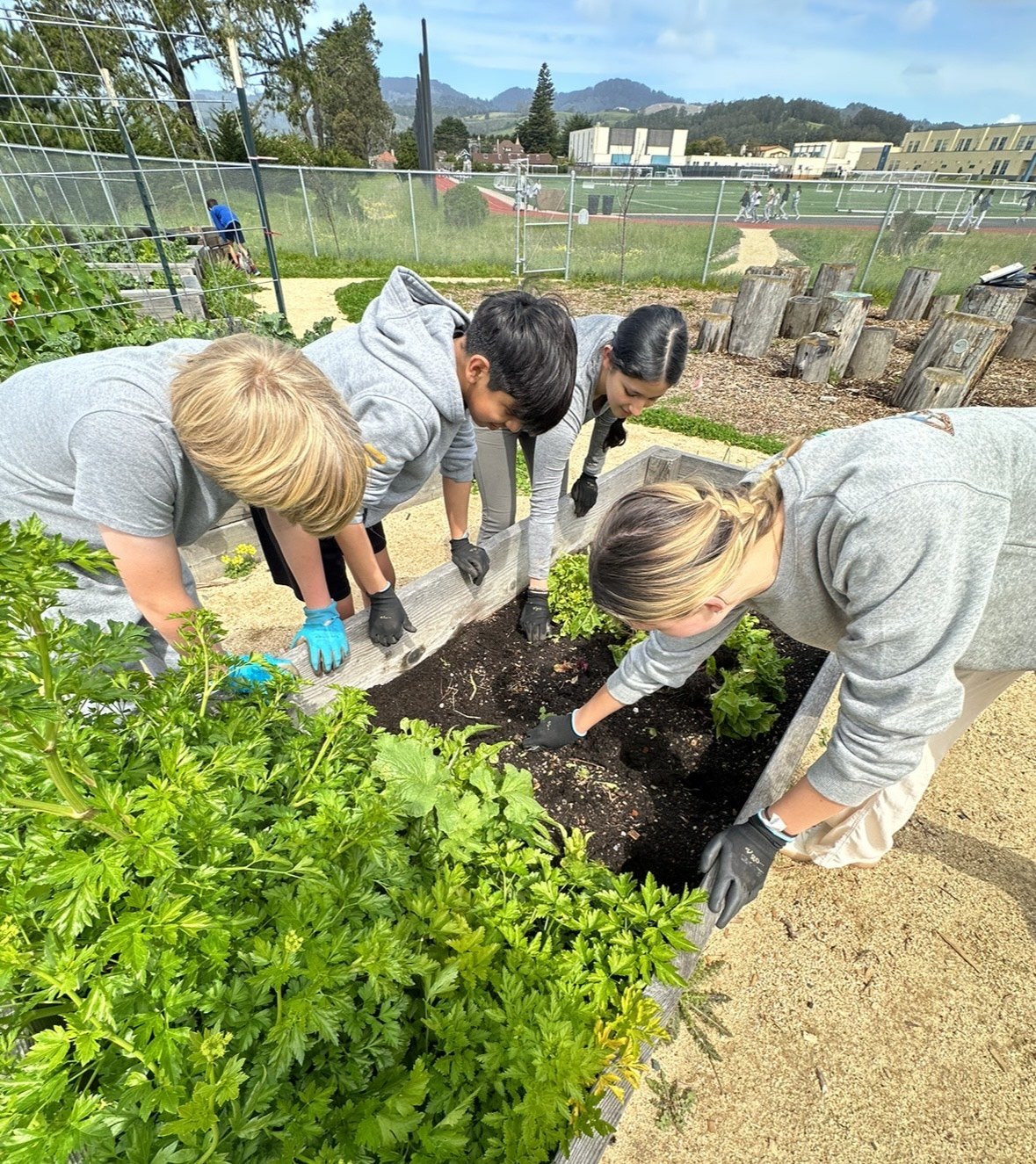Visiting Cunha Middle School's "Li'l Farm"
"Little Cunha Farm was built with the idea that students could learn outdoors, connect to their local community, and find that altruism in helping others,” Sonia Myers, Earth Science & Agriculture Science Educator
Sonia Myers is an advocate for environmental literacy and sustainable education who says “I believe if we offer the youth the tools to learn about our world, to ask questions and to find solutions, that they will help heal our planet and help to sustain its beauty for many more generations.” We caught up with Sonia at Cunha Middle School for a visit to the farm with a class of 7th graders.
THP: Tell us Sonia, what do your students do when they come to the farm?
Sonia Myers: Each student picks a task they want to involve themselves in for the week, with the intention of going out from the classroom to the farm two to three days a week. Tasks include cleaning and taking care of chickens, transplanting, pruning, harvesting in the garden beds, sowing seeds and readying soil in the greenhouse, watering, laying wood chips, making signs, building garden beds, cleaning up and maintenance of the farm.
THP: Cabrillo Unified School District (CUSD) is committed to sustainability through solar, landscaping, tri-bin recycling. What part does the Little Farm play in that?
Sonia: The Little Cunha Farm came about because I believed there was a need for a garden at the middle school. Growing up in a farming community it seemed appropriate that this be offered. I saw The HEAL Project being done at Hatch, and of course there is the long-standing Agricultural Science program at Half Moon Bay High School, but there was nothing at Cunha to bridge that gap and keep the continuity. The idea for a garden then grew into a "little farm” because the students were so interested. They enjoyed being outside and they believed it could be bigger!
While we have those environmental features that align with the district's commitment to sustainability, such as the rainwater catchment system, native and pollinating plants, biodiversity and learning about regenerative agricultural practices, our program is truly based on selflessness, hard work, and community service.
THP: Kids in The HEAL Project love to cook and make healthy snacks. How is it for Cunha students with farm produce and flowers ?
Sonia: One of the highlights of the classes is being in the kitchen. Students love to don the apron and work with others to make food! We make simple recipes like kale chips, then we make more elaborate pasta dishes, pizzas, salsa, quesadillas, pumpkin bread, rosemary shortbread, pancakes, frittatas. We have used our eggs to make cookies for fundraisers to help continue to fund our program.
THP: Sonia, you're making us hungry! In terms of programs for students, what's next when a student moves from Cunha Middle School to Half Moon Bay High School?
Sonia: One of my favorite parts of building this program at Cunha Middle School is our collaboration with the Ag teachers at the high school. Hana Lani Hanson and Gayle Smith, and our Career & Technical Education (CTE) coordinator Lisa Longaker have a solid program at the high school. There is a bigger involvement among the students with Future Farmers of America (FFA) and their supervised agricultural experience (SAE) projects. Lisa has been instrumental in getting our program off the ground, and I am so thankful for all she has done. My only hope on the Little Cunha Farm is that students find that little bit of inspiration from growing food and raising chickens that they want to continue learning at the high school and get involved in their community.
THP: Thank you, Sonia!







